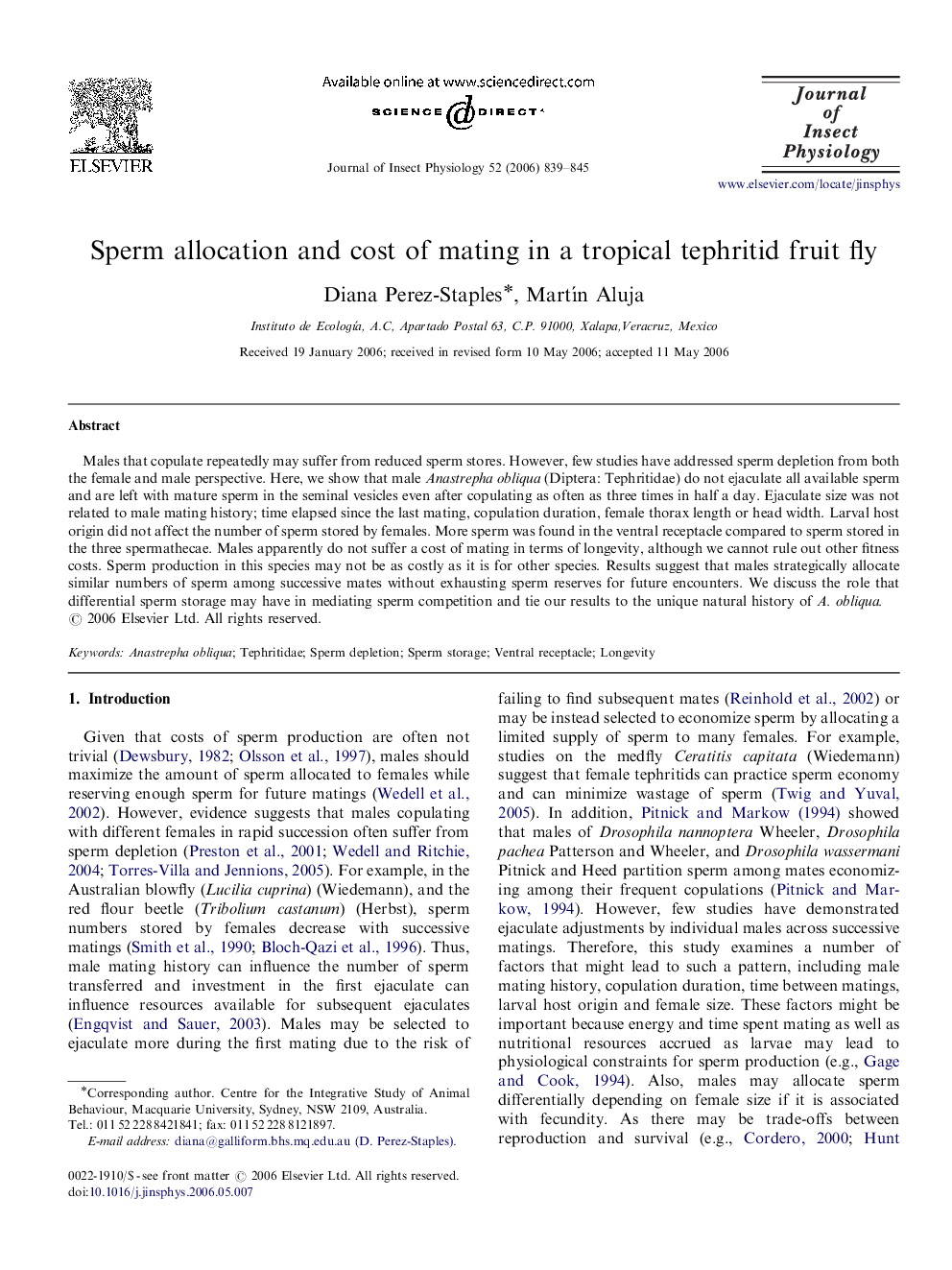| Article ID | Journal | Published Year | Pages | File Type |
|---|---|---|---|---|
| 2841767 | Journal of Insect Physiology | 2006 | 7 Pages |
Males that copulate repeatedly may suffer from reduced sperm stores. However, few studies have addressed sperm depletion from both the female and male perspective. Here, we show that male Anastrepha obliqua (Diptera: Tephritidae) do not ejaculate all available sperm and are left with mature sperm in the seminal vesicles even after copulating as often as three times in half a day. Ejaculate size was not related to male mating history; time elapsed since the last mating, copulation duration, female thorax length or head width. Larval host origin did not affect the number of sperm stored by females. More sperm was found in the ventral receptacle compared to sperm stored in the three spermathecae. Males apparently do not suffer a cost of mating in terms of longevity, although we cannot rule out other fitness costs. Sperm production in this species may not be as costly as it is for other species. Results suggest that males strategically allocate similar numbers of sperm among successive mates without exhausting sperm reserves for future encounters. We discuss the role that differential sperm storage may have in mediating sperm competition and tie our results to the unique natural history of A. obliqua.
